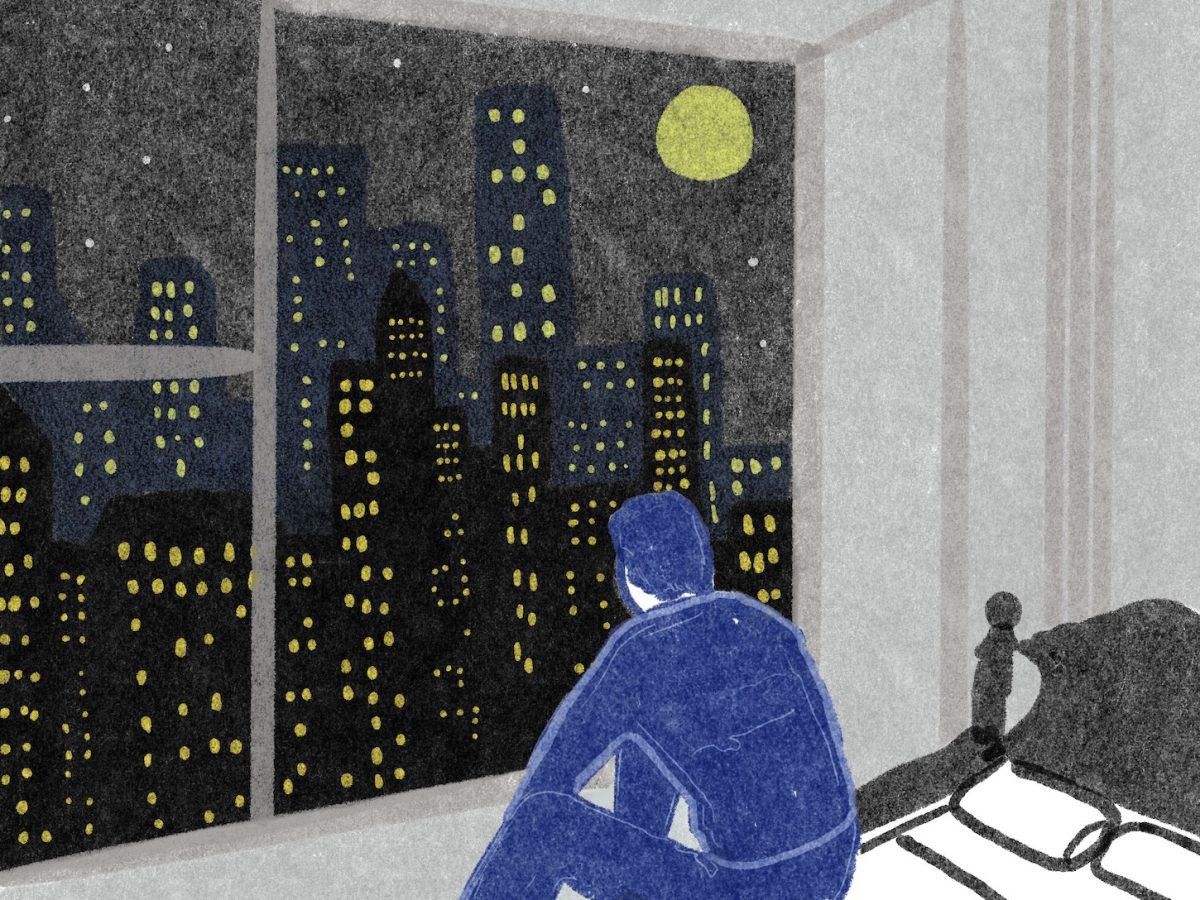You are standing outside the first meeting for a club, contemplating whether or not it’s a good idea to walk in. While you know this is a good way to meet new people, make friends and possibly find your place, the thought of entering the room and making small talk seems daunting. You hover outside the door, pretending to be on the phone with a friend and hoping someone will speak to you first. After waiting for 10 minutes, you walk away. Oh well, you’ll get ‘em next time.
Generation Z has been called the “loneliest generation,” with around 80% of Gen Zers reporting they had experienced feelings of loneliness over the last year. These feelings of loneliness are often pushed by feelings of social anxiety, the extreme fear of being scrutinized by others in social situations. This epidemic facing 60% of Gen Z manifests through public speaking, meeting new people, going out or even just having normal conversations.
Individuals who struggle with social anxiety can opt to avoid social interactions altogether, making them more likely to experience loneliness. Gen Z’s social anxiety is symptomatic of the unprecedented circumstances the group was raised in — from being the first to grow up with social media to having developmental teen and pre-teen years disrupted by COVID-19.
One of the most pervasive yet least discussed aspects of social anxiety is the fear of criticism, perpetuated by the omnipresent world of social media — but certainly present in other aspects of life, like the academic and professional worlds. With so much material for comparison in every single aspect of life, the urge to see how one measures up is irresistible. When it comes to the internet, the dual phenomena of social comparison and the lingering remnants of cancel culture have made it so users are not only afraid of showing themselves, but even their opinions.
The COVID-19 pandemic exacerbated the issue by creating a need for human interaction while still inside the homes quarantined us. When so much of what’s happening shifts to virtual space, expectations develop. As a result, casual posting on social media becomes much more difficult, since users are acutely aware of just how good the rest of the world’s content is and how theirs stacks up against it. The sense of competition out in the world discourages some who don’t want to go through the pressure of comparison.
Coming from someone who faced severe social anxiety through my high school years, I have now learned to find solace in my relationships with others. As such, I don’t think addressing the social anxiety epidemic should be an individual effort, but rather one based on finding comfort and solidarity with the people we love, respect and value.
While NYU already offers a myriad of student engagement events, they are still high-pressure environments to meet new people. The university can alleviate this by tweaking its already vast range of workshops into smaller group sessions, discussing management of social anxiety and navigating city life. Having smaller workshops — in addition to its existing mental health services — would create spaces in which students that face social anxiety would be able to voice their opinions and queries more freely, knowing that other peers also share their struggles.
Ultimately, the solution to these problems is going to come from within, and not from some seminar or guide somebody can give you. The best way to address social anxiety is to understand that avoidance exacerbates and reinforces fear, rather than reducing it. We might feel safer staying within our comfort zone — be it our dorm or phone — but ultimately we must realize that in the long term, our relationships with those around us are paramount. The best way to ease social apprehension is to force ourselves to take the first step before we can rationalize a reason to say no to ourselves. Whether that comes in the form of asking an Uber driver how their day was or initiating conversation with our peers in class, the first step is always the most daunting one.
Gen Z has dealt with social anxiety on a scale no generation has had to deal with in human history. Instead of trying to appear as perfectly curated, we should foster an environment wherein vulnerability is accepted rather than treated as an opportunity for attack. The more we start to engage with those around us, the more we come to realize that so many around us are fighting to overcome social anxiety too.
WSN’s Opinion section strives to publish ideas worth discussing. The views presented in the Opinion section are solely the views of the writer.
Contact Shanay Tolat at [email protected].























































































































































